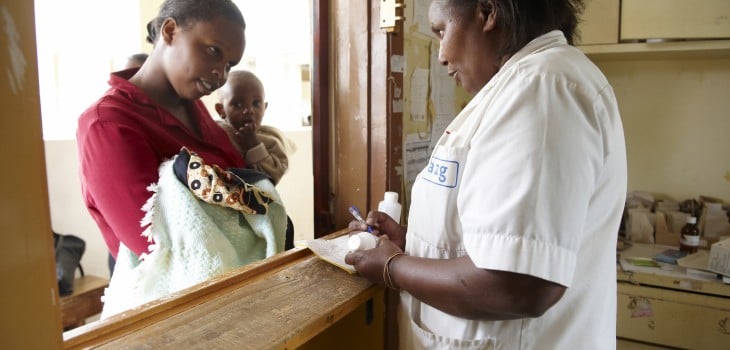How can the private health sector contribute to Universal Health Coverage?
London School of Hygiene & Tropical Medicine https://lshtm.ac.uk/themes/custom/lshtm/images/lshtm-logo-black.png Monday 27 June 2016
The private sector in low- and middle-income countries is extremely diverse. It includes large scale corporate hospitals, independent sole practitioners and retail sellers of drugs. Private providers often contribute a substantial share of health services. For example, in Nigeria where there is a large retail pharmaceutical sector, more than 90% of antimalarial drugs are sold through private drug shops. They provide a significant share of care for priority health conditions such as diarrhoea and fever in children.
Private providers can help to meet gaps in service coverage, be more convenient and more friendly to patients. However, they can also exploit differences in knowledge to their advantage – prescribing unnecessary tests and procedures, leading to high levels of healthcare payments that can be devastating for households.
Governments are gradually recognising the role that these providers play in their health systems, but as they develop plans to progress to Universal Health Coverage, they are struggling to design policies that harness the benefits of the private sector on the one hand, and minimise the risks on the other.
A series of papers published in the Lancet this week explores these issues in greater depth. A number of key themes emerge.
- The private sector is varied and consists of a range of different types of providers, and its importance in terms of meeting health needs varies by service, by country and by socioeconomic group.
- Our current sources of data on the role of private providers are unable to provide a complete picture, making it difficult for governments to fully engage with the sector and shape its role in the health system.
- The role of the private sector in a health system is closely linked to what the public sector does. If the government fails to ensure access to basic, affordable, quality services, the private sector will respond to this market opportunity. However, with weak regulation this response may expose poor people to poor quality, inadequate care provided by unqualified providers.
- There are a variety of ways that governments can engage with the private sector. It can prohibit or ban private practice; it can control providers through statutory or self-regulation; it can encourage improvements in services and quality, for example through training, accreditation or subsidies; or it can engage directly by using public funds to contract them.
In high-income settings with universal health systems, the private sector often plays a role in providing care. In the UK, for instance, GPs are self-employed but funded by government. There is a tremendous variation in the role of private hospitals across health systems within the Organisation for Economic Co-operation and Development, with as many as 70% of facilities in the private sector. So universal coverage is compatible with a variety of public-private mix.
How should governments of low- and middle-income countries shape the role of the private sector as they transition to universal health coverage?
The most important step is to ensure adequate public funding for health. In countries where government spends at least 5% of GDP on health services, the use of the informal, unqualified sector for treatment of childhood illness disappears, and is effectively competed out of the market by the provision of an adequate alternative. Beyond this basic requirement, there are a variety of policy stances towards the private sector that are compatible with universal health coverage.
Governments need to choose the combination of constraint, encouragement and purchasing that will ensure that the private sector serves the public interest.
Image: Private healthcare drug shop; Credit LSHTM & RESYST Research Consortium
Our postgraduate taught courses provide health practitioners, clinicians, policy-makers, scientists and recent graduates with a world-class qualification in public and global health.
If you are coming to LSHTM to study a distance learning programme (PG Cert, PG Dip, MSc or individual modules) starting in 2024, you may be eligible for a 5% discount on your tuition fees.
These fee reduction schemes are available for a limited time only.